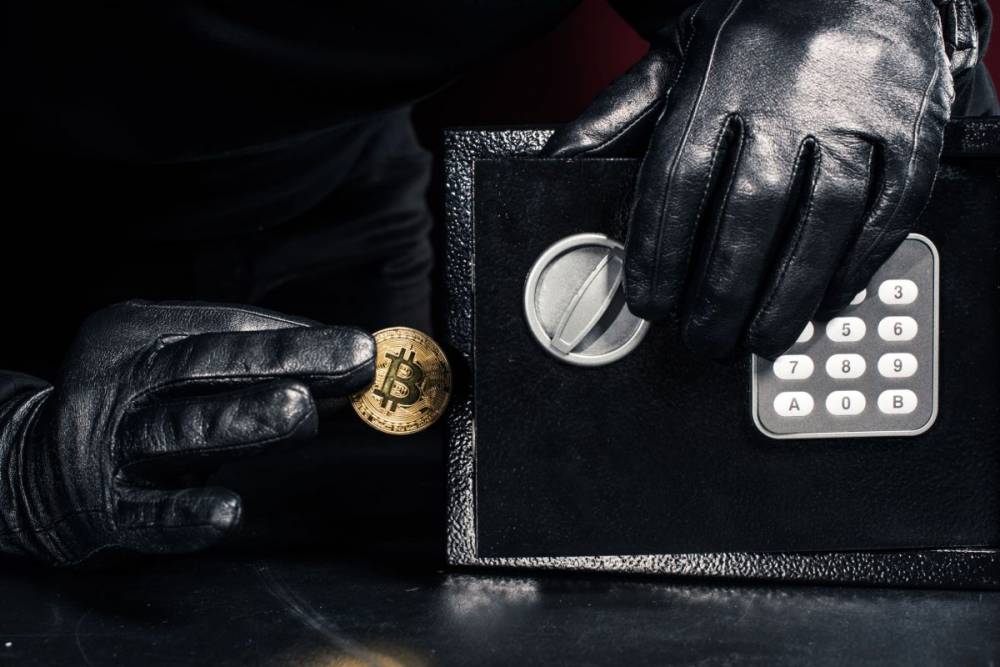
Is this the largest crypto heist in history - Africrypt founders vanish with $3.6 billion in Bitcoin
Is this the largest crypto heist in history? Africrypt's founders vanish with $3.6 billion in Bitcoin
The founding brothers of Africrypt, a South African cryptocurrency investment platform, have reportedly vanished along with $3.6 billion worth of Bitcoin from investors.
According to Bloomberg, an investment firm hired by investors claims the company's website is down and it is unable to locate Ameer and Raees Cajee, the investment platform's founders.
It added that repeated calls to Cajee and Raees's mobile numbers were immediately routed to a voicemail system.
Crypto's most daring heist?
According to reports, the brothers founded Africrypt in 2019 and it provided investors with a high rate of return.
However, the first signs of trouble began to emerge in April, as Bitcoin rocketed to new all-time highs. Ameer Cajee, the company's Chief Operating Officer, informed clients that Africrypt had been compromised.
He then asked them not to notify lawyers or authorities about the incident, as this would delay the process of recovering the missing funds.
However, certain investors retained the law firm Hanekom Attorneys to conduct an investigation. The firm discovered that Africrypt's pooled Bitcoin had been transferred from the company's South African accounts and client wallets.
According to Hanekom Attorneys, "we were immediately suspicious because the announcement pleaded with investors not to pursue legal action." Seven days prior to the alleged hack, Africrypt employees lost access to the back-end platforms.”
It added that the coins were processed through tumblers and mixers or transferred to other large bitcoin pools, making them extremely difficult to change.
The founding brothers were completely unreachable following the discovery. The firm cited collusion, claiming that Africrypt employees lost access to back-end platforms seven days prior to the alleged hack.
With Bitcoin's value skyrocketing since the start of the year, the disappearance of approximately 69,000 coins will have been worth more than $4 billion at their April high. This would make the alleged heist the largest dollar loss in the history of cryptocurrency scams.
Government officials' hands are tied
The Africrypt scam is not the country's first. Nor were previous incidents insignificant. Last year, cryptocurrency investors in the country lost millions of dollars when Mirror Trading International, another South African Bitcoin trader, went bankrupt.
According to reports, the losses totaled approximately 23,000 digital coins worth approximately $1.2 billion. According to Chainalysis, it was the year's largest cryptocurrency scam.
The Mirror Trading scam prompted the South African government to initiate plans to regulate the space. The regulations, however, have not been enforced.
The latest incident may serve as a catalyst for regulators to attempt to impose order on the market. However, the government's hands are currently tied in prosecuting the Africrypt scam.
According to Brandon Topham, the regulator's head of enforcement, South Africa's Finance Sector Conduct Authority is also investigating Africrypt, but is currently prohibited from initiating a formal investigation due to the fact that crypto assets are not legally classified as financial products.
Additionally, the law firm notified the Hawks, a national police elite unit. Additionally, he informed crypto exchanges worldwide that no attempt should be made to convert the digital coins.
In Summary
Cryptocurrency investment in South Africa and Africa as a whole is increasing. For the first time in the country's history, the daily value of crypto-asset trading exceeded 2 billion rands ($141 million) in January.
However, as the number of scams in the country increases, regulators now have additional reasons to impose a strict regulatory framework on the industry.

